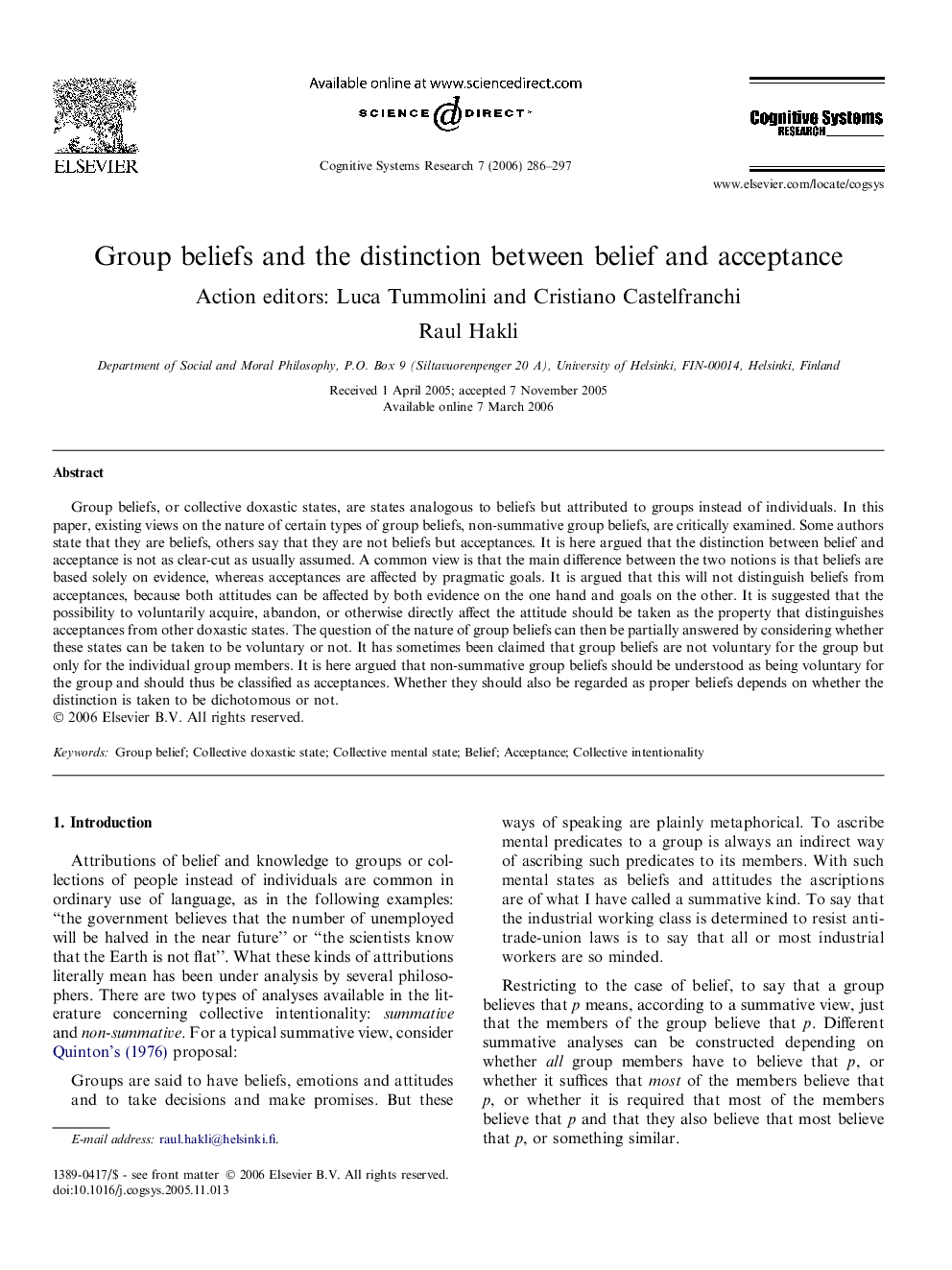| کد مقاله | کد نشریه | سال انتشار | مقاله انگلیسی | نسخه تمام متن |
|---|---|---|---|---|
| 378682 | 659186 | 2006 | 12 صفحه PDF | دانلود رایگان |

Group beliefs, or collective doxastic states, are states analogous to beliefs but attributed to groups instead of individuals. In this paper, existing views on the nature of certain types of group beliefs, non-summative group beliefs, are critically examined. Some authors state that they are beliefs, others say that they are not beliefs but acceptances. It is here argued that the distinction between belief and acceptance is not as clear-cut as usually assumed. A common view is that the main difference between the two notions is that beliefs are based solely on evidence, whereas acceptances are affected by pragmatic goals. It is argued that this will not distinguish beliefs from acceptances, because both attitudes can be affected by both evidence on the one hand and goals on the other. It is suggested that the possibility to voluntarily acquire, abandon, or otherwise directly affect the attitude should be taken as the property that distinguishes acceptances from other doxastic states. The question of the nature of group beliefs can then be partially answered by considering whether these states can be taken to be voluntary or not. It has sometimes been claimed that group beliefs are not voluntary for the group but only for the individual group members. It is here argued that non-summative group beliefs should be understood as being voluntary for the group and should thus be classified as acceptances. Whether they should also be regarded as proper beliefs depends on whether the distinction is taken to be dichotomous or not.
Journal: Cognitive Systems Research - Volume 7, Issues 2–3, June 2006, Pages 286–297